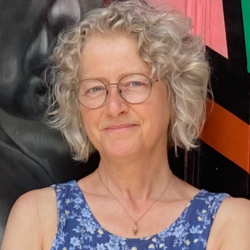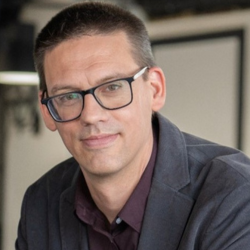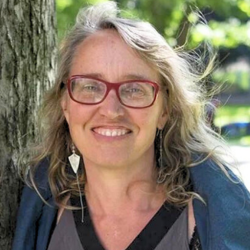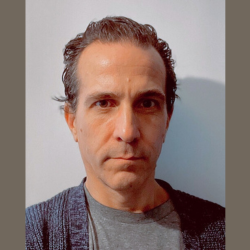The JHI is pleased to announce the Chancellor Jackman 6-month Faculty Research Fellowships in the Humanities for 2024-25.
Tenured faculty at the University of Toronto, each six-month Faculty Research Fellow receives a half-year leave from the normal teaching and administrative duties to undertake research (including travel) on the project proposed in their application. They are chosen for demonstrated excellence of their record of scholarship and the merit of the research proposal. Six-month fellows are invited to participate in the intellectual life of the JHI in the year following their fellowship, often by contributing a short talk to the JHI’s YouTube channel.
6-Month Faculty Research Fellows
- Li Chen, Associate Professor, UTSC Historical & Cultural Studies—Capital Punishment, Imperial Justice, and Confucian Rulership: A Cultural History of the Qing Autumn Assizes, 1644-1911
- Angelica Fenner, Associate Professor, A&S Germanic Languages & Literatures / Cinema Studies—An Aesthetics of (Dis)Affection: The Films of Maria Speth
- Alan Galey, Associate Professor, Faculty of Information / A&S English—The Philology of Streams: Understanding Digital Texts with Complex Histories
- Brian Gettler, Associate Professor, UTM Historical Studies—Fiduciary Empire: The Origins of the Indian Fund in Canada, 1796-1897
- Bonnie McElhinny, Professor, A&S Anthropology / Women & Gender Studies—The River Runs a Long Way Straight Here: Down Bottom and Down Stream with the Connoquenessing Creek
- Jack Sidnell, Professor, UTM Anthropology—Language Reform and Revolutionary Consciousness: Remaking Self and Society under Socialism in Vietnam
Li Chen
UTSC Historical & Cultural Studies
 Li Chen, J.D.(Illinois), Ph.D.(Columbia), studies the complex interplay of law, culture, and politics in the context of Chinese and global history since the 1500s. He is the author of Chinese Law in Imperial Eyes: Sovereignty, Justice, and Transcultural Politics (Columbia, 2016, winner of the Association for Asian Studies’ 2018 Joseph Levenson Book Prize in the field of China studies), two co-edited volumes, Chinese Law: Knowledge, Practice, and Transformation, 1530s-1950s (with Professor Madeleine Zelin, Brill, 2015), and Pathways of Scholarship: Reflective and Methodological Conversations with International Scholars in Humanities and Social Sciences (with Professor Ruoyun Bai, Shangwu yinshuguan, 2023, in Chinese). He has another Chinese book forthcoming, Law, Knowledge, and Power in the Age of Empire (Shangwu yinshuguan, 2024), and expects to complete his second English monograph in 2024, entitled Invisible Power and Imperial Governance: Legal Specialists, Juridical Capital, and Technocracy in Qing China while working on his third monograph on the juridical politics and symbolic implications of capital punishment and royal leniency in late imperial China.
Li Chen, J.D.(Illinois), Ph.D.(Columbia), studies the complex interplay of law, culture, and politics in the context of Chinese and global history since the 1500s. He is the author of Chinese Law in Imperial Eyes: Sovereignty, Justice, and Transcultural Politics (Columbia, 2016, winner of the Association for Asian Studies’ 2018 Joseph Levenson Book Prize in the field of China studies), two co-edited volumes, Chinese Law: Knowledge, Practice, and Transformation, 1530s-1950s (with Professor Madeleine Zelin, Brill, 2015), and Pathways of Scholarship: Reflective and Methodological Conversations with International Scholars in Humanities and Social Sciences (with Professor Ruoyun Bai, Shangwu yinshuguan, 2023, in Chinese). He has another Chinese book forthcoming, Law, Knowledge, and Power in the Age of Empire (Shangwu yinshuguan, 2024), and expects to complete his second English monograph in 2024, entitled Invisible Power and Imperial Governance: Legal Specialists, Juridical Capital, and Technocracy in Qing China while working on his third monograph on the juridical politics and symbolic implications of capital punishment and royal leniency in late imperial China.
Fellowship Research Project—Capital Punishment, Imperial Justice, and Confucian Rulership: A Cultural History of the Qing Autumn Assizes, 1644-1911
This study will offer an interdisciplinary and innovative study of the mandatory judicial review of thousands of capital cases every year in China during the Qing dynasty (1644-1911). By utilizing a large body of archival records and variety of other primary sources, this book project will shed new light on the institutional logic, operational dynamics, and underlying ideology as well as structural tensions of the legal and political systems of late imperial China, providing a fresh view of the nature and operation of early modern Chinese law, culture, and politics.
Angelica Fenner
A&S Germanic Languages & Literatures / Cinema Studies
 Angelica Fenner’s scholarship engages questions of (dis)affiliation and (un)belonging at the scales of the psychical, familial, community, (trans)national, non-human, and environmental, with attention to intersectional vectors such as race, class, gender. She has held fellowships and grants through Connaught, SSHRC, Camargo, the Waterloo Centre for German Studies, and DAAD. Current projects include an auteur study of German director Maria Speth and a SSHRC-funded collaboration with Hester Baer (U Maryland), “Feminist Film History Reframed: The Ulm School, 1962-68,” which excavates the legacies of cinefeminism among the pathbreaking women who enrolled the inaugural cohort of West Germany’s first film school in 1962.
Angelica Fenner’s scholarship engages questions of (dis)affiliation and (un)belonging at the scales of the psychical, familial, community, (trans)national, non-human, and environmental, with attention to intersectional vectors such as race, class, gender. She has held fellowships and grants through Connaught, SSHRC, Camargo, the Waterloo Centre for German Studies, and DAAD. Current projects include an auteur study of German director Maria Speth and a SSHRC-funded collaboration with Hester Baer (U Maryland), “Feminist Film History Reframed: The Ulm School, 1962-68,” which excavates the legacies of cinefeminism among the pathbreaking women who enrolled the inaugural cohort of West Germany’s first film school in 1962.
Fellowship Research Project—An Aesthetics of (Dis)Affection: The Films of Maria Speth
My project redresses the dearth of scholarship on women directors within the 21st century countercinema movement known as the ‘Berlin School.’ Adopting an intersectional approach to film auteurism, I reframe this as more-than-human assemblage, and reconceive film authorship as distributed agency. Negative affects—those intensifying with the proliferation of homo oeconomicus—are palpable in Speth’s worldmaking, located in the silences and gaps of coherent screen action. Her films become object lessons in reframing ugly feelings as emerging from more-than-human relationalities and thereby destabilizing anthropocentric assumptions about sovereignty and entitlement.
Alan Galey
Faculty of Information / A&S English
 Alan Galey’s research and teaching are located at the intersection of media studies, the history of books and reading, and the digital humanities. His current primary research is a project called Bibliographic Methods for Born-Digital Texts: From Paratext to Performance (www.veilofcode.ca). He has won awards for both his teaching and research, including the 2013 Bowers Prize for best article in the field of textual studies, and directed the collaborative program in Book History and Print Culture.
Alan Galey’s research and teaching are located at the intersection of media studies, the history of books and reading, and the digital humanities. His current primary research is a project called Bibliographic Methods for Born-Digital Texts: From Paratext to Performance (www.veilofcode.ca). He has won awards for both his teaching and research, including the 2013 Bowers Prize for best article in the field of textual studies, and directed the collaborative program in Book History and Print Culture.
Fellowship Research Project—The Philology of Streams: Understanding Digital Texts with Complex Histories
How does the modern idea of content obscure the complex natures and histories of digital texts? The illusion of perfectly transmissible content has long been familiar to scholars who work with print and manuscript texts with complex transmission and publication histories. Digitized and born-digital texts have histories as well, and the philological disciplines (e.g. textual criticism, scholarly editing, book history, bibliography) give us a unique set of tools to recover those histories. Using these tools to analyze streaming platforms alongside the curation work of fan communities can help us to see within the black boxes of digital platforms.
Brian Gettler
UTM Historical Studies
 Brian Gettler specializes in the history of colonialism, the state, and capitalism in Canada as well as the fraught relationship between the national histories of Quebec and Canada and those of Indigenous nations. He has published numerous articles and book chapters in both French and English as well as his 2020 book, Colonialism’s Currency: Money, State, and First Nations in Canada, 1820-1950. Gettler is a member of the Montreal History Group and Associate Editor of the Canadian Historical Review.
Brian Gettler specializes in the history of colonialism, the state, and capitalism in Canada as well as the fraught relationship between the national histories of Quebec and Canada and those of Indigenous nations. He has published numerous articles and book chapters in both French and English as well as his 2020 book, Colonialism’s Currency: Money, State, and First Nations in Canada, 1820-1950. Gettler is a member of the Montreal History Group and Associate Editor of the Canadian Historical Review.
Fellowship Research Project—Fiduciary Empire: The Origins of the Indian Fund in Canada, 1796-1897
This project explores the origins and early development of the Indian Fund in Canada, a system under which the imperial and later federal Crown sold First Nations’ lands, generating proceeds to be held in trust. The project focuses on officials’ multi-dimensional use of the Indian Fund as a means of paying for the state’s project of Indigenous “civilization” and assimilation; as a source of investment capital for settler institutions like municipalities, courts, and universities and infrastructure such as canals, ports, and roads; and as a means of shoring up public credit during the recurring financial crises of the mid-nineteenth century.
Bonnie McElhinny
A&S Anthropology / Women & Gender Studies
 Bonnie McElhinny grew up at the confluence of Connoquenessing and Glade Run Creeks in Pennsylvania, on Lenape and Seneca Territory. She has served as Principal of New College and as Director of the Women and Gender Studies Institute. Her books include Words, Worlds and Material Girls; Filipinos in Canada (edited with Roland Coloma, Ethel Tungohan, J.P.Catungal and Lisa Davidson); and Language, Capitalism, Colonialism: Toward a Critical History (with Monica Heller). She directs Water Allies (waterallies.com), which focuses on building good relations through anticolonial, feminist, and anti-racist approaches to water and environmental justice.
Bonnie McElhinny grew up at the confluence of Connoquenessing and Glade Run Creeks in Pennsylvania, on Lenape and Seneca Territory. She has served as Principal of New College and as Director of the Women and Gender Studies Institute. Her books include Words, Worlds and Material Girls; Filipinos in Canada (edited with Roland Coloma, Ethel Tungohan, J.P.Catungal and Lisa Davidson); and Language, Capitalism, Colonialism: Toward a Critical History (with Monica Heller). She directs Water Allies (waterallies.com), which focuses on building good relations through anticolonial, feminist, and anti-racist approaches to water and environmental justice.
Fellowship Research Project—The River Runs a Long Way Straight Here: Down Bottom and Down Stream with the Connoquenessing Creek
This book is a biography of the Connoquenessing Creek, and an environmental history of the extraction of oil and coal and natural gas from underground our family farm and the Creek in Western Pennsylvania. The book’s form (riffle-pool), inspired by the Creek, considers how Seneca lands were paid to Revolutionary War veterans, the drilling of the world’s first oil wells, Irish-Slovakian family history, the flooding of the Seneca reserve, attempts to dilute pollution, and fracking. Freshwater mussels, old growth red oaks, hogsuckers, the night of the living dead gift shop, and some class III rapids all make an appearance.
Jack Sidnell
UTM Anthropology
 Jack Sidnell (Ph.D. Anthropology, University of Toronto, 1998) has conducted long-term ethnographic and sociolinguistic study in the Caribbean and in Vietnam. His empirical research focuses on the intersection of language structure, social interaction, and reflexive reanalysis. In contributions to the fields of anthropology, linguistics, and sociology, Sidnell has addressed a broad set of theoretical questions concerning the semiotic mediation of social relations and the consequences of linguistic diversity for social life.
Jack Sidnell (Ph.D. Anthropology, University of Toronto, 1998) has conducted long-term ethnographic and sociolinguistic study in the Caribbean and in Vietnam. His empirical research focuses on the intersection of language structure, social interaction, and reflexive reanalysis. In contributions to the fields of anthropology, linguistics, and sociology, Sidnell has addressed a broad set of theoretical questions concerning the semiotic mediation of social relations and the consequences of linguistic diversity for social life.
Fellowship Research Project—Language Reform and Revolutionary Consciousness: Remaking Self and Society under Socialism in Vietnam
In the 1940s and 50s, Vietnamese communists engaged in an ambitious project of language reform as part of their attempt to overturn the prevailing social order and revolutionize ways of thinking. My book Language Reform and Revolutionary Consciousness: Remaking Self and Society under Socialism in Vietnam, which I will complete during my time as a Jackman fellow, examines this project of reform in an effort both to understand the historical development of Vietnamese and to lay the groundwork for a general approach to the ethics, aesthetics and politics of linguistic and semiotic intervention.


